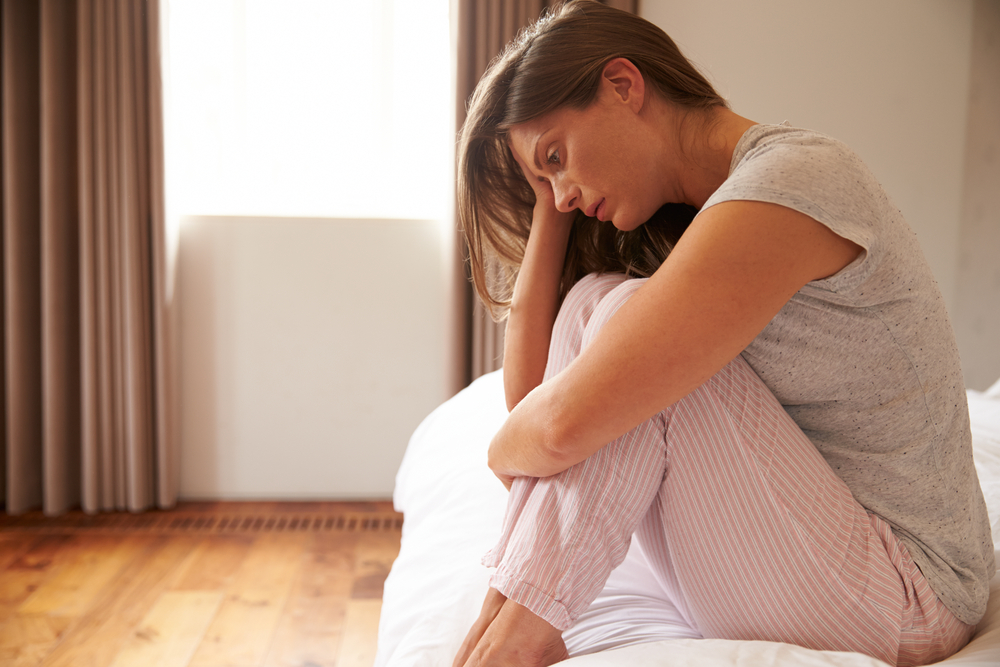
A recent study published in JAMA Psychiatry linking hormonal birth control to depression has left a lot of women scratching their heads. Can being on the pill, the ring, or the patch cause depression? If you have experienced depression, is hormonal contraception out of the question?
Researchers from the University of Copenhagen studied and followed up with more than 1 million women and girls ages 15 to 34 between 2000 and 2013. (Women with a depression diagnosis before the start of the study were excluded.) When researchers followed up with them, 55 percent of the women were using or had recently used hormonal contraception. Overall, there were 133,178 first prescriptions for antidepressants and 23,077 first diagnoses of depression reported during the follow-up.
Women who used combined (estrogen and progestin) oral contraceptives had a 1.2-fold higher risk for going on an antidepressant (than those not using birth control), while the risk to women taking progestin-only pills was 1.3-fold. Those using the vaginal ring had a 1.5-fold increased risk, and the women using the transdermal patch had a two-fold risk.
Researchers also separated out the data by age groups and found that adolescent girls had the highest increase in risk of depression. There was a 1.8-fold higher risk that those on combined oral contraceptives would go on an antidepressant and a 2.2-fold higher risk for adolescents on progestin-only contraceptives. Girls had about a three-fold higher risk of starting an antidepressant if they were on non-oral products such as the patch and intrauterine devices (IUDs).
So, what does this all mean?
The verdict is still out, unfortunately.
Øjvind Lidegaard, M.D., DMSC, the lead researcher, says his team considers birth control a probable cause for depression—but says additional studies are needed to confirm the results.
"[Women] should be informed that use of hormonal contraception increases the risk of depression, and that women with such disorders in their history probably should choose another type of contraception," he says.
But David A. Grimes, M.D., a clinical professor of obstetrics and gynecology at the University of North Carolina School of Medicine, says there is not an established causal association between depression and hormonal contraceptives.
The risk as small as the one found in the study was "below the discrimination ability of an observational study," Dr. Grimes notes. In other words, because of inherent bias, studies of this type are simply incapable of identifying such a tiny difference. Only a properly done randomized controlled trial, free of bias, could do so.
*/
/*–>*/
/*–>*/
What We Know
The exact cause of depression is not fully understood, though hormonal changes could be a trigger or factor, says M. Susan Scanlon, M.D., a gynecologist at the Midwest Center for Women's HealthCare in Illinois. Genetics, abnormal brain function, and biological brain differences are other factors. Women's pregnancy and postpartum stages have been tied to an increased risk for depression.
"Patients considering a hormonal approach to contraception may benefit from a similar approach to screening for depression while considering all their contraceptive options," Dr. Scanlon says. Ask your doctor if he or she recommends screening you for depression with the Patient Health Questionnaire (PHQ-9). Doing so may at least open the door for a discussion so together you're able to select the most appropriate contraceptive option.
Since the study came out, Dr. Scanlon says she has added more screening questions to patient visits. For those who show signs of depressed mood or depression, she recommends they first try non-hormonal options such as the copper IUD, diaphragm with spermicide, or condoms. Women who do not want children permanently can also consider a tubal ligation or a vasectomy for their male partners.
While more research is needed to understand the complexity of depression and hormones, Dr. Scanlon says non-hormonal methods can help women prevent unplanned pregnancy and support their mental wellbeing at the same time. She still offers hormonal options, but emphasizes the importance of close follow-up on patient symptoms.
In a nutshell, the medical community has differing views on whether or not hormonal contraceptives are linked to depression. If you have concerns, talk to your doctor about your risks and for more information on the other contraception options available.
